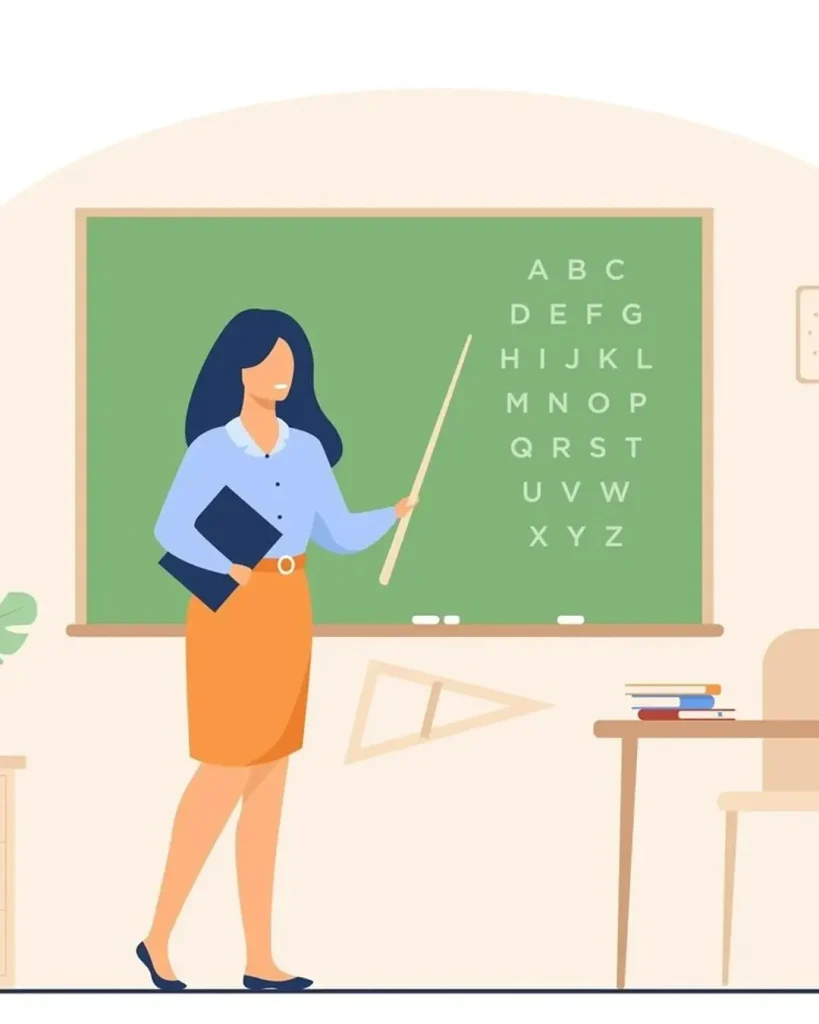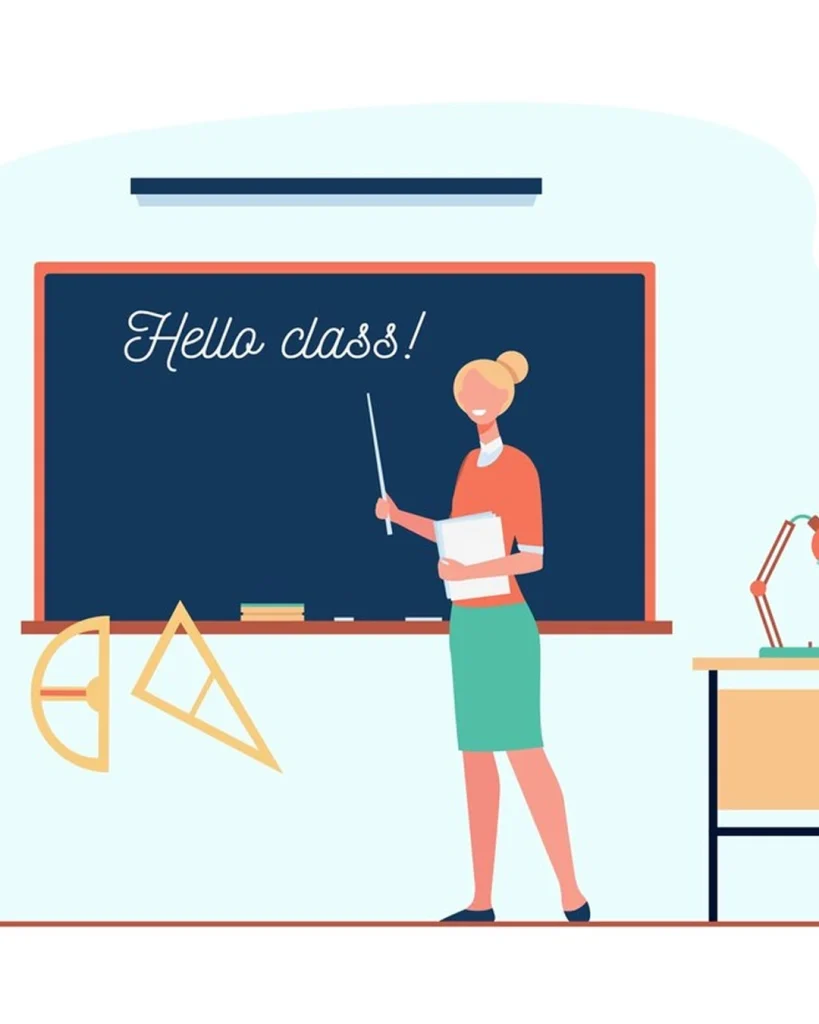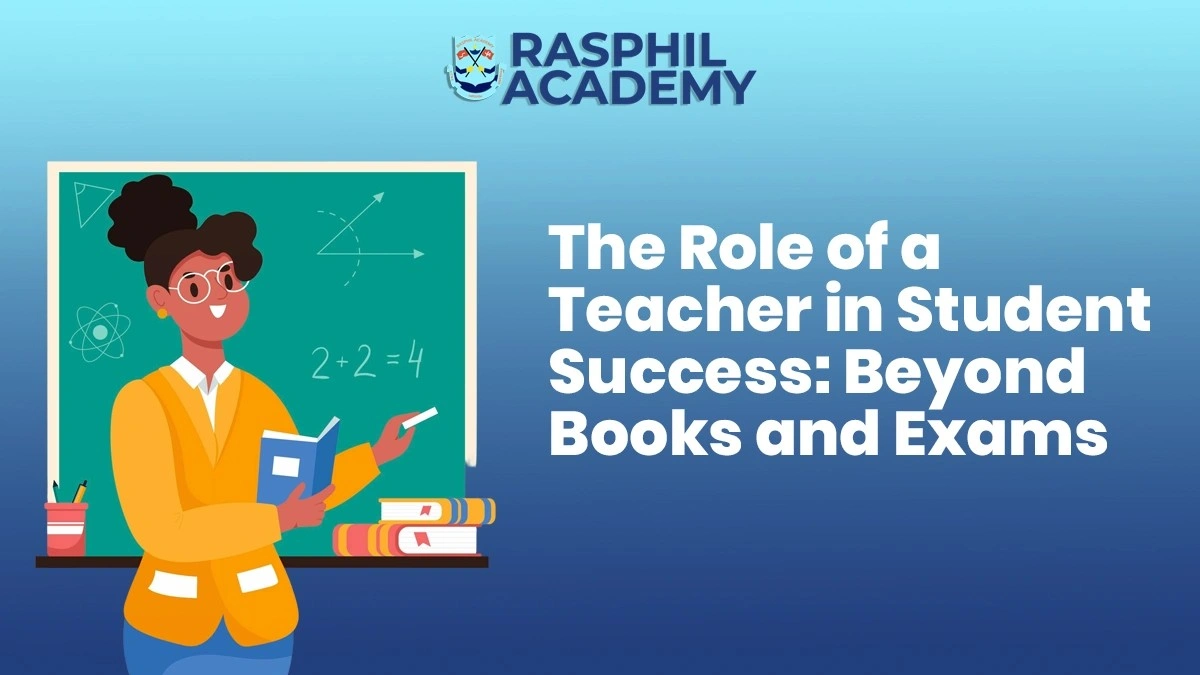Role of Teachers in Student Success: When I say school or college, most of us would immediately think of textbooks, exams, and homework. But if you take a moment and think about your own experience as a student, you will understand that what actually made you who you are today wasn’t the syllabus—it was the teacher in front of your class. Teachers play a much larger role in making their students successful than simply lecturing or coaching them for exams. Teachers are mentors, motivators, guides, and sometimes even life coaches who help shape the future of every learner.
In this article, we’ll explore how teachers impact student learning, the importance of teachers in education, the qualities of a good teacher for students, and why teacher influence beyond the classroom is critical for long-term success.
Also Read: How to Stay Focused While Studying: 15 Proven Tips to Avoid Distractions and Boost Concentration
Table of Contents
Why Teachers Matter More Than Just Textbooks


Books contain knowledge, but it is the teacher who makes knowledge come alive. Imagine studying a complex math equation without someone to break it down. Or attempting to comprehend Shakespeare without someone who can make it accessible. This is precisely why the role of teachers in education cannot be overemphasized.
Teachers don’t merely impart facts—they link concepts to actuality, generate interest, and tell students why it is relevant. That individual touch usually tips the balance between a child not keeping up or flourishing in their academic journey.
The Role of Teachers in Student Success
So, what exactly is the role of teachers in student success? It can be broken into several parts:
1. Knowledge Facilitators
Teachers break down complicated concepts, and they make learning less daunting for students. They plan lessons, employ various teaching methods, and tailor their approach to suit the needs of learners with different requirements.
2. Mentors and Guides
In addition to academics, teachers are mentors. They guide students into choosing a career, surmounting fears, and becoming confident of their capabilities. Encouragement from them can make self-doubt transform into self-confidence.
3. Role Models
Students regard teachers with respect. The work ethic, discipline, and values a teacher shows frequently get replicated in a student’s life. This speaks volumes of the influence of the teacher outside the classroom.
4. Support System
Teachers tend to pick up on when students are emotionally or socially struggling. By being supportive and approachable, they provide a sanctuary where students feel at ease about expressing their concerns.
How Teachers Impact Student Learning
Students learn in a variety of ways—some visually, some through experience, some by hearing. Wonderful teachers know this and adjust their teaching to fit the way that students learn. Here’s how teachers influence student learning:
- Fostering curiosity: A good teacher doesn’t give answers but fosters curiosity to create better questions.
- Enhancing confidence: Teachers see abilities in students that they don’t necessarily notice in themselves.
- Establishing discipline: Setting expectations and rules helps teachers instill discipline, which is essential for success throughout life.
- Building teamwork: Collaborative activities with teachers make students learn communication, collaboration, and teamwork skills.
The Importance of Teachers in Education
The significance of educators in education is that they get to influence not only academic performance but also the personality of a student. Education is not merely passing examinations—it is about producing individuals who are able to think critically, act responsibly, and be positively influential members of society.
Teachers play a central role in:
- Facilitating knowledge integration between curriculum and practical application.
- Promoting virtues such as honesty, compassion, and persistence.
- Enhancing leadership abilities by delegating duties to students.
- Fostering lifelong learning through curiosity and passion.
Qualities of a Good Teacher for Students
What makes a teacher really good? Although every student is unique in their preferences, there are common characteristics that determine the characteristics of a good teacher for students:
- Patience: All students learn at a different speed. Good teachers explain ideas slowly and patiently until all the students grasp them.
- Communication Skills: They are able to explain difficult concepts in terms that are easily understood.
- Empathy: Teachers are aware that the students have personal and academic issues and respond with care.
- Adaptability: They modify instructional strategies based on the needs of the students.
- Passion for Teaching: Students can easily discern whether a teacher has passion for what they teach or not. Passionate teachers create passionate students.
- Fairness and Integrity: Treating all the students alike forms trust and respect.
Teacher Influence Beyond Classroom
Most people erroneously assume that a teacher’s work is done the moment the school bell sounds. Far from it. The teacher’s impact outside the classroom is actually one of the strongest features of their profession.
- Life Lessons: Teachers teach students lessons in ethics, teamwork, and coping with failure.
- Career Guidance: Teachers assist students to consider future careers, matching abilities to opportunity.
- Character Building: Students learn values like honesty, respect, and kindness by emulating their teachers.
- Social Development: Teachers lead shy students to become more confident and boisterous students to be humble.
The Modern Role of Teachers in Student Success
As technology becomes a part of education, everyone asks if teachers are as needed anymore. The answer is clearly yes. Online information may offer up content, but it can’t match the qualities that a good teacher offers to students—like empathy, encouragement, and guidance on an individualized level.
Teachers today are not merely providers of information; they are learning experience facilitators. They leverage technology to enrich lessons, promote inclusivity, and prepare students for an ever-evolving world.
Challenges Teachers Face in Impacting Student Success
Although teachers play a deep-rooted role, they are also confronted with obstacles:
- Congested Classrooms: Very difficult to provide individual attention.
- Examination Pressure: Excessive concentration on marks suppresses creativity.
- Resource Constraints: Particularly in rural areas, absence of facilities makes teaching more challenging.
- Emotional Exhaustion: Continuously juggling professional and personal difficulties.
- Acknowledging these problems is the starting point of helping teachers more effectively.
How Students and Parents Can Support Teachers
In order for teachers to reach their full potential, they also require support:
- Students must: Respect the teacher, be actively involved, and openly discuss challenges.
- Parents must: Appreciate teacher reports, collaborate with school programs, and promote learning at home.
This all forms a balanced environment in which teachers can deliver at their finest.
Why Teacher Appreciation Matters
Failing to recognize the role of teachers in teaching is not merely a lack of respect, but it’s about encouraging them to carry on their work. Slight appreciation gestures—thank-you letters, birthday celebrations, or even word-of-mouth encouragement—can charge up teachers and remind them that they matter.
Also Read: Top Private CBSE School Near Me – Admission Open from Nursery to Class 11 in Lucknow
Conclusion
The teacher’s role in students’ success goes far beyond textbooks and grades. They mold minds, instill values, and spark dreams. From shaping the way educators impact students’ learning to showcasing the actual significance of educators in education, their work is invaluable. By becoming the essence of a quality teacher to students, they imprint their presence on them for a lifetime. And their teacher’s influence outside the classroom verifies that their teachings are not limited to books but touch all walks of life.
FAQs
Q1. What is the role of teachers in student success?
Teachers are very important in influencing student success through imparting knowledge, guidance, and encouragement. Beyond academics, they help students develop life skills, critical thinking, and emotional intelligence.
Q2. How do teachers impact student learning beyond books and exams?
Teachers influence student learning through making the classroom experience interesting, inspiring creativity, instilling confidence, and developing problem-solving skills that equip students with the challenges of everyday life.
Q3. Why is the importance of teachers in education so significant?
Teachers are the pillar of education. Not only do they impart lessons, but they also instill curiosity, discipline, and lifelong learning tendencies in students, making them essential for overall development.
Q4. What are the qualities of a good teacher for students’ growth?
A good teacher is patient, understanding, knowledgeable, and flexible. They are effective communicators, they encourage students, and do more than read texts to make learning relevant and enjoyable.
Q5. How do teachers influence students beyond the classroom?
Teachers impact students through being role models, influencing values, ethics, and character. Their mentoring involves developing leadership, team work, and decision-making skills that influence students’ success in the future.

